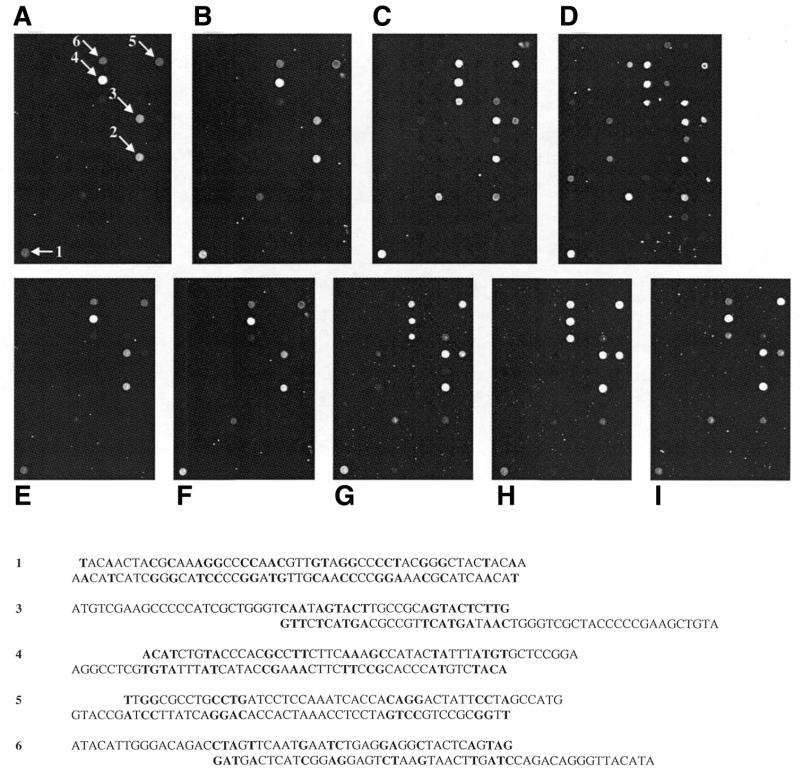Figure 3.
False positive signals under different experimental conditions. Primer elongation reactions were performed under standard conditions (see Materials and Methods) without a target on differently coated slides. (A) 1%, (B) 2%, (C) 3% aminopropyl-trimethoxysilane and (D) aminosilane slides from Perkin Elmer. Prominent false positive signals are denoted by arrows. Possible primer–dimer structures of five of these six sequences are shown below. The false positive signal at position 2 cannot be explained by the formation of primer–dimers or hairpin loops. Varying parameters of the cycling protocol influence the intensity of false positive signals: (E) standard conditions, (F) increased cycle number (25 instead of 15), (G) decreased annealing temperature (48 instead of 56°C), (H) prolonged annealing time (60 instead of 30 s) and (I) prolonged elongation time (30 instead of 15 s).

